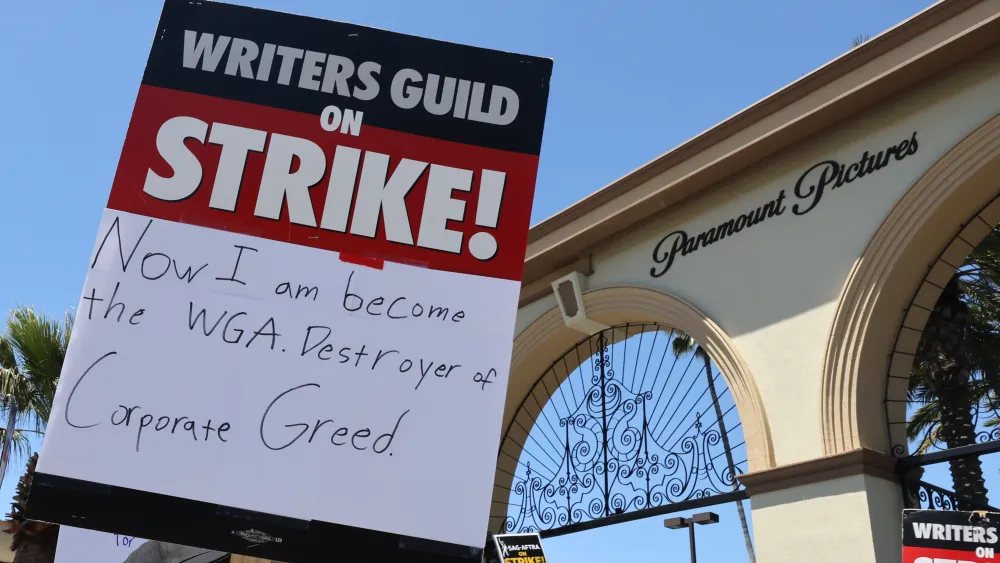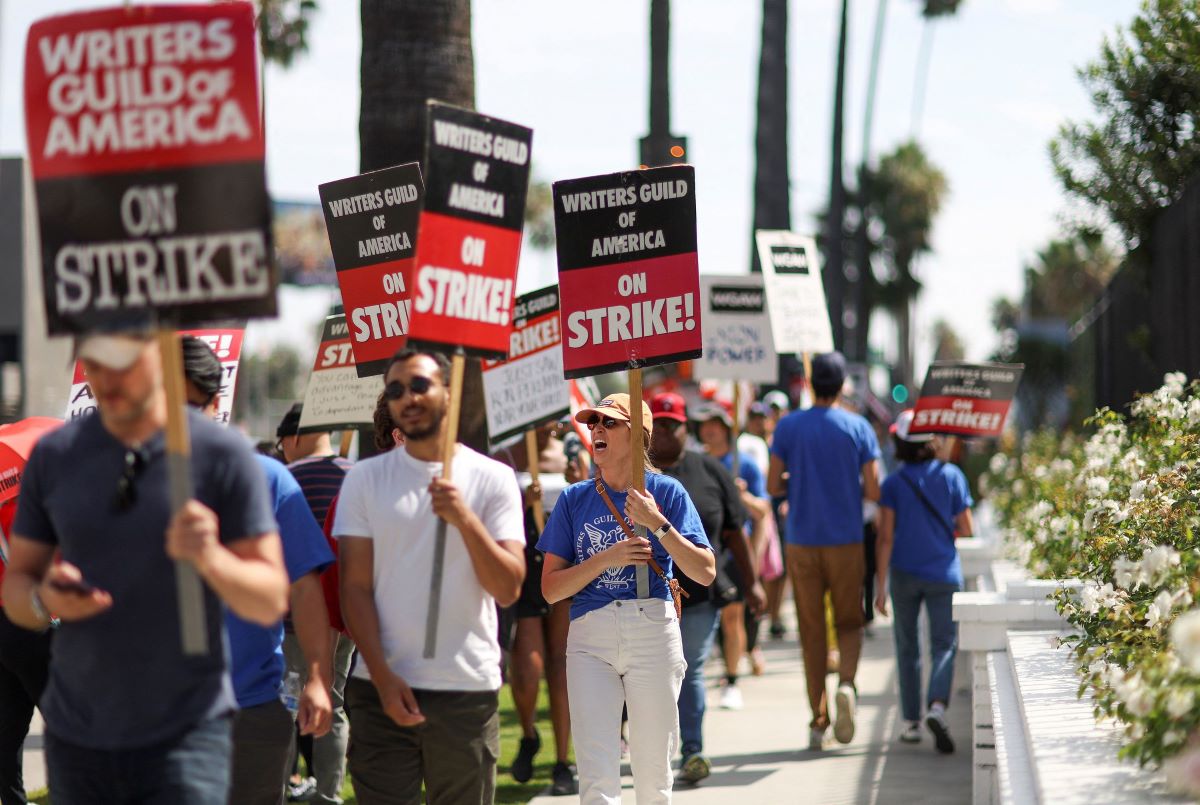Writers and producers are nearing a deal to end the Writers Guild of America (WGA) strike after meeting face-to-face on Wednesday.
The two sides are hopeful about finalizing an agreement by Thursday, though sources indicated to Faber that if a deal is not reached, the strike might extend through the end of the year.
On Wednesday evening, the WGA and the Alliance of Motion Picture and Television Producers (AMPTP) issued a joint statement confirming that they had met for negotiations and planned to continue discussions on Thursday.
They are scheduled to reconvene at 9 a.m. PT, according to Faber. The strike, which has lasted more than 100 days, began on May 2 and has since seen actors join the picket lines in July.
The work stoppage has halted production on numerous high-profile TV shows and films, including Netflix’s “Stranger Things,” Disney and Marvel’s “Blade,” and Paramount’s “Evil.”
Earlier in the week, the writers’ union announced its intention to resume negotiations with the studios.
This marks the closest the parties have come to a resolution since the strike began. The 11,000-plus film and TV writers have been advocating for compensation that aligns with the revenue generated during the streaming era.
In addition to higher pay, the WGA is seeking new rules to ensure TV shows are staffed with a specific number of writers for a designated period.

The union also wants compensation throughout preproduction, production, and postproduction, rather than just for revisions or new material provided without pay.
In late August, the AMPTP publicly presented its latest proposal to the WGA, but tensions remained high.
Negotiations have included discussions with major media executives, such as Warner Bros. Discovery CEO David Zaslav, Disney’s Bob Iger, Netflix co-CEO Ted Sarandos, and NBCUniversal film head Donna Langley.
The strikes have significantly impacted media companies as they go through the challenges of making streaming profitable and attracting audiences back to theaters.
Warner Bros. Discovery, which owns a TV and film studio along with a major portfolio of pay TV networks, recently adjusted its earnings expectations due to the strikes.
The company now anticipates a $300 million to $500 million impact on its adjusted earnings before interest, taxes, depreciation, and amortization, with a full-year range of $10.5 billion to $11 billion.
At a recent conference, Zaslav urged an end to the writers’ and actors’ strikes, emphasizing the need to return to work.
“We need to do everything we can to get people back to work,” Zaslav stated at the investors’ conference. “We really have to focus as an industry, and we are, on trying to get this resolved in a way that’s really fair.”







Leave a Reply